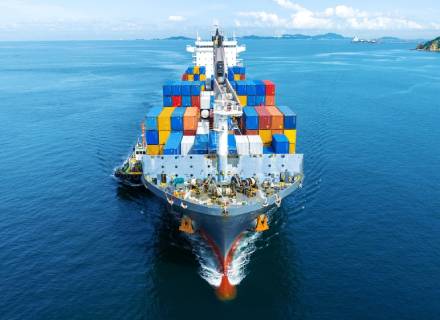A Singaporean shipping company carried out what it claimed to be the first-ever simultaneous bio-methanol refuelling of a container ship while it was being loaded with cargo in the port.
The turnaround time of a vessel is accelerated by simultaneous loading and refuelling, according to Shmuel Yoskovitz, CEO of Singapore-based X-Press Feeders.
He said that having more time allows the ship to sail more slowly, which uses less fuel and lowers expenses and emissions.
According to data from the International Maritime Organisation, 2.89% of greenhouse gas emissions worldwide are attributable to maritime transportation. It pollutes the environment more heavily than flying.
“This milestone represents a significant leap forward for X-Press Feeders and the global maritime industry,” Francis Goh, the firm’s chief operating officer said, as reported by Zawya.
According to him, this was the first instance of a port refuelling with green methanol at the same time as far as reporters were aware.
Green methanol, also known as bio-methanol, is made up of waste carbon dioxide (CO2) and “green hydrogen,” which is produced by splitting water molecules using renewable energy.
According to X-Press Feeders, Green methanol has a lower carbon footprint than conventional marine fuels, reducing emissions by up to 65%.
A ship was refuelled with bio-methanol via another ship in 2023, but this was accomplished offshore.
Singapore’s Maritime and Port Authority indicated that it was prepared to provide methanol bunkering on a commercial basis, endorsing the refuelling at the Tuas Port.
The city-state runs the second-largest port in the world and is a key location for bunkering.
The first container ship powered by bio-methanol was launched by Danish shipping behemoth Maersk in 2023 in an attempt to meet EU greenhouse gas reduction targets.
The ship built by X-Press Feeders is the first vessel built in China capable of operating on both green methanol and conventional fuel.
According to the company, during 2024 and 2025, it will add 14 more dual-fuel boats to its fleet.

